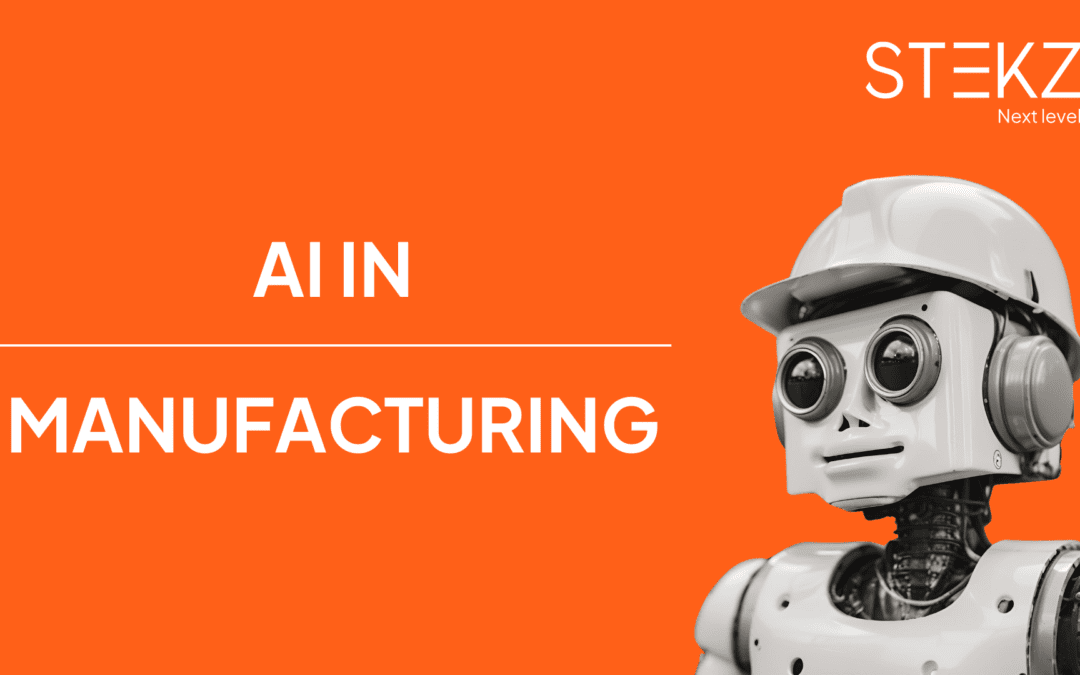The manufacturing industry stands on the brink of a technological revolution driven by artificial intelligence (AI). Reportedly, by next year more than 52% of manufacturing firms will implement Artificial Intelligence in their operations, and for good reason. Here’s how AI can reshape your organization today:
Predictive Maintenance: AI’s ability to predict issues in equipment before they occur is revolutionizing machine maintenance. By analyzing data from sensors and machines, AI algorithms can detect anomalies and predict potential breakdowns, leading to decreased downtime and increased production efficiency. With predictive maintenance, your business’ downtime can be reduced by as much as 50%, while extending asset lifetimes by 40%! Predictive maintenance also excels in scalability, seamlessly adapting across numerous machines and manufacturing facilities. The days of waiting until something breaks to fix it, or checking it by a set (unoptimized) schedule are gone with predictive maintenance.
Advanced Robotics: Robotics powered by AI are not only automating repetitive tasks but can now perform complex operations that require more adaptability and precision. These smarter robots can learn and adapt to new situations, improving your operations’ overall quality and productivity. Human collaboration has also never been easier thanks to collaborative robots called cobots. Cobots are designed to work alongside humans and excel in a variety of tasks, including assembly, packaging, and material handling. Finally, humans and robots can work together in peace.
Quality Control: AI systems improve the quality control process by providing real-time analytics and visual recognition capabilities. These systems can identify defects and inconsistencies faster and more accurately than human inspectors, ensuring high-quality production. Root cause analysis (RCA) can also be enhanced with AI by feeding all process and product data into machine learning (ML) algorithms. With some training, it can then begin correlating defects in the products with the exact time in the process when it occurs. Then your quality inspectors can take the guessing out of guesswork.
Supply Chain Optimization: AI can optimize your supply chain management by forecasting demands, managing inventory, and planning logistics. This results in a more efficient, responsive, and cost-effective supply chain. ML models can suggest new, speedier floor layouts, racking arrangements and even the routes workers take to shuttle inventory more quickly. All while reducing your operating costs. Some organizations are training computer vision systems to look at live feeds of assembly lines, logistic hubs and even delivery vehicles to quickly spot mistakes. Thus reducing rates of misassembly or wrong deliveries, reducing material waste and valuable time. Chain = supplied!
Workforce Augmentation: AI is not replacing jobs but augmenting the workforce. By handling tedious tasks, AI allows human workers to focus on more complex and creative problem-solving activities, meaning higher job satisfaction and productivity.
In today’s landscape, it is increasingly valuable for companies that want to scale to utilize AI automation in some capacity, especially in manufacturing where efficiency is crucial. At Stekz, we’ve helped our clients in the manufacturing sector by streamlining their processes and greatly improving their efficiency. We have seen firsthand how such changes can make a world of difference. Whether it’s a complex AI system for preventive maintenance, or simply integrating a better, faster system for tracking orders, we’ve done it all. Moreover, we have personally seen how every organization has different automation needs. If you wish to learn more about Intelligent Automation visit our blog for more insightful articles. And we wish you luck on your automation journey!


Recent Comments